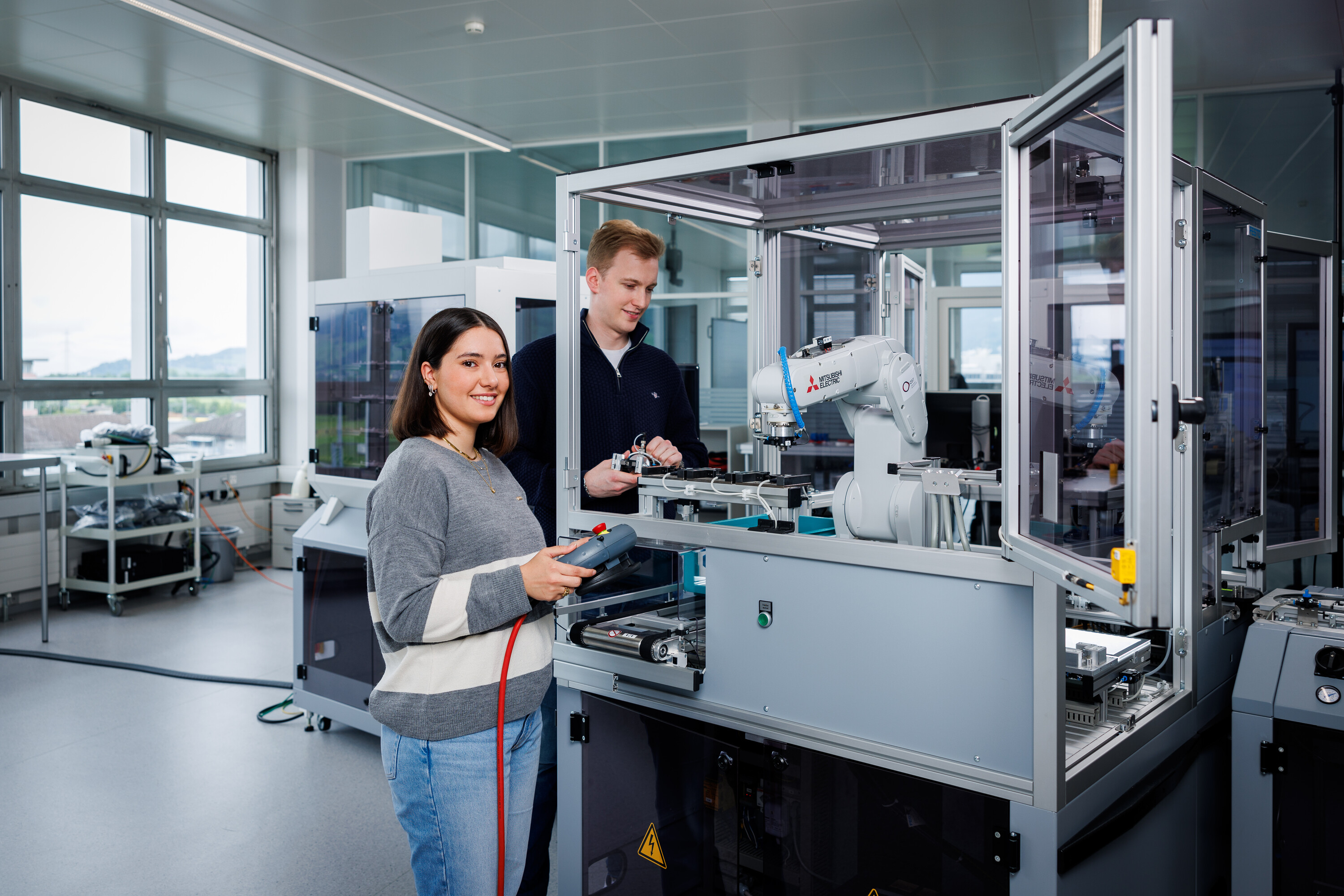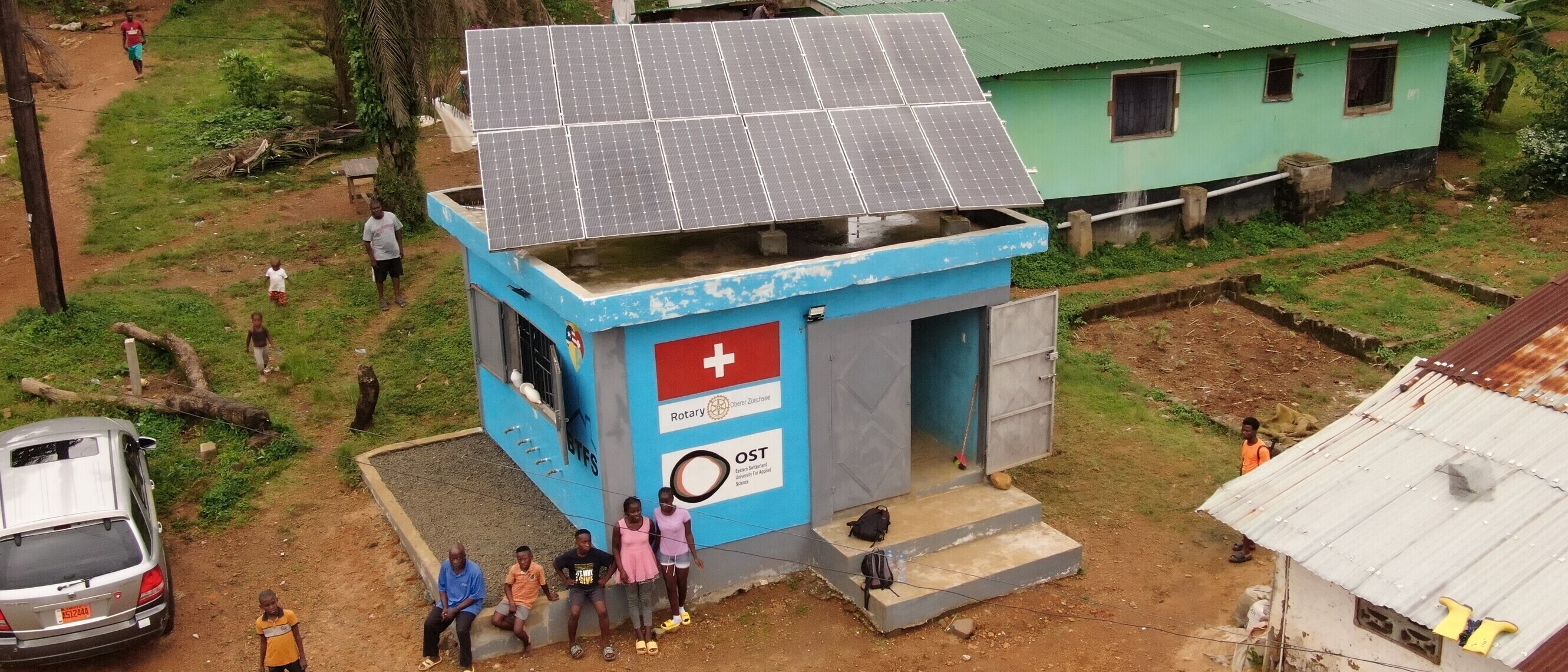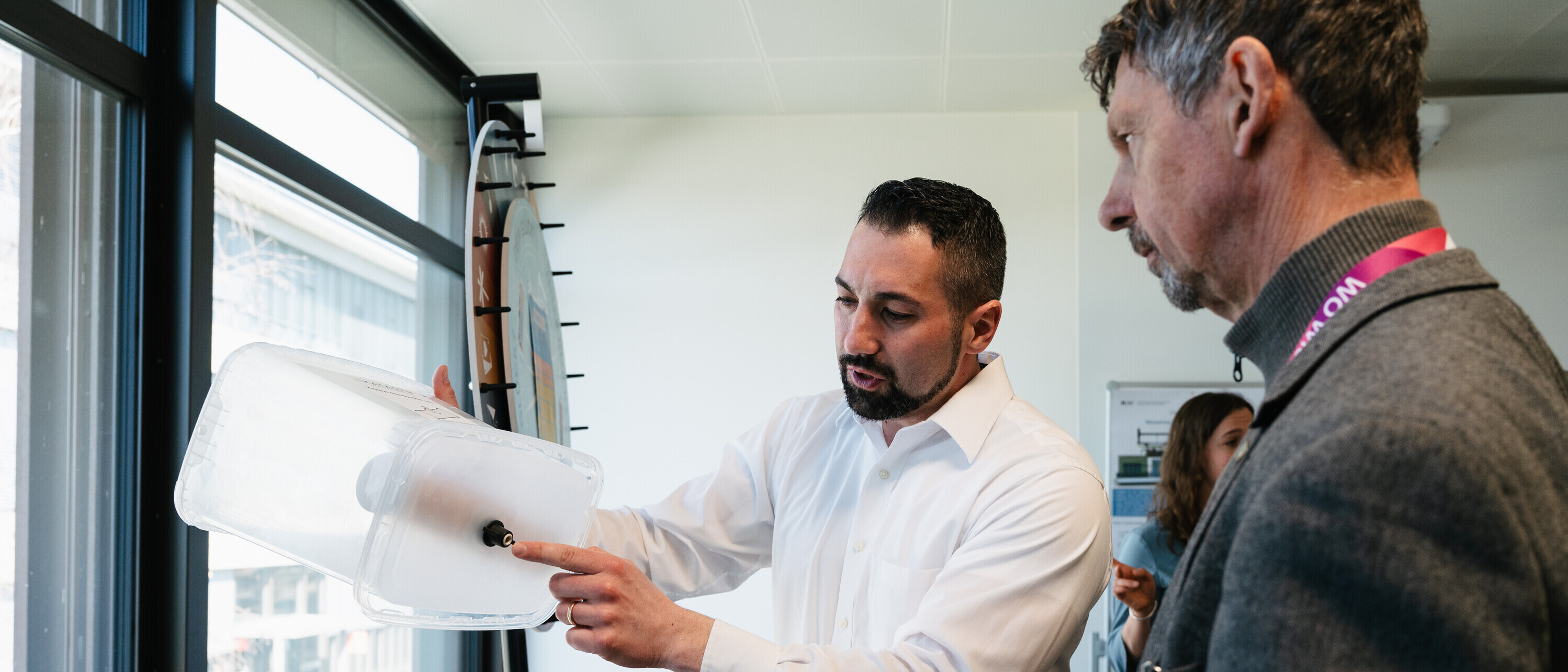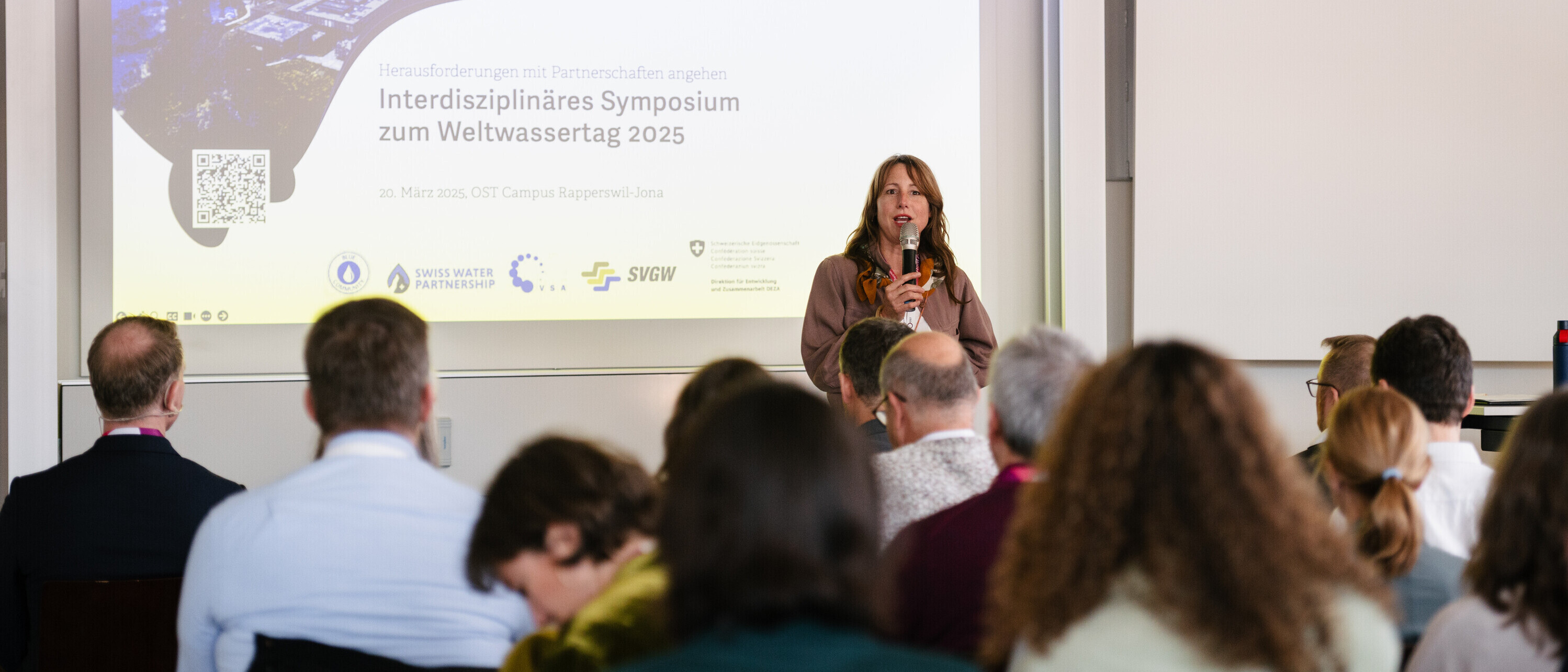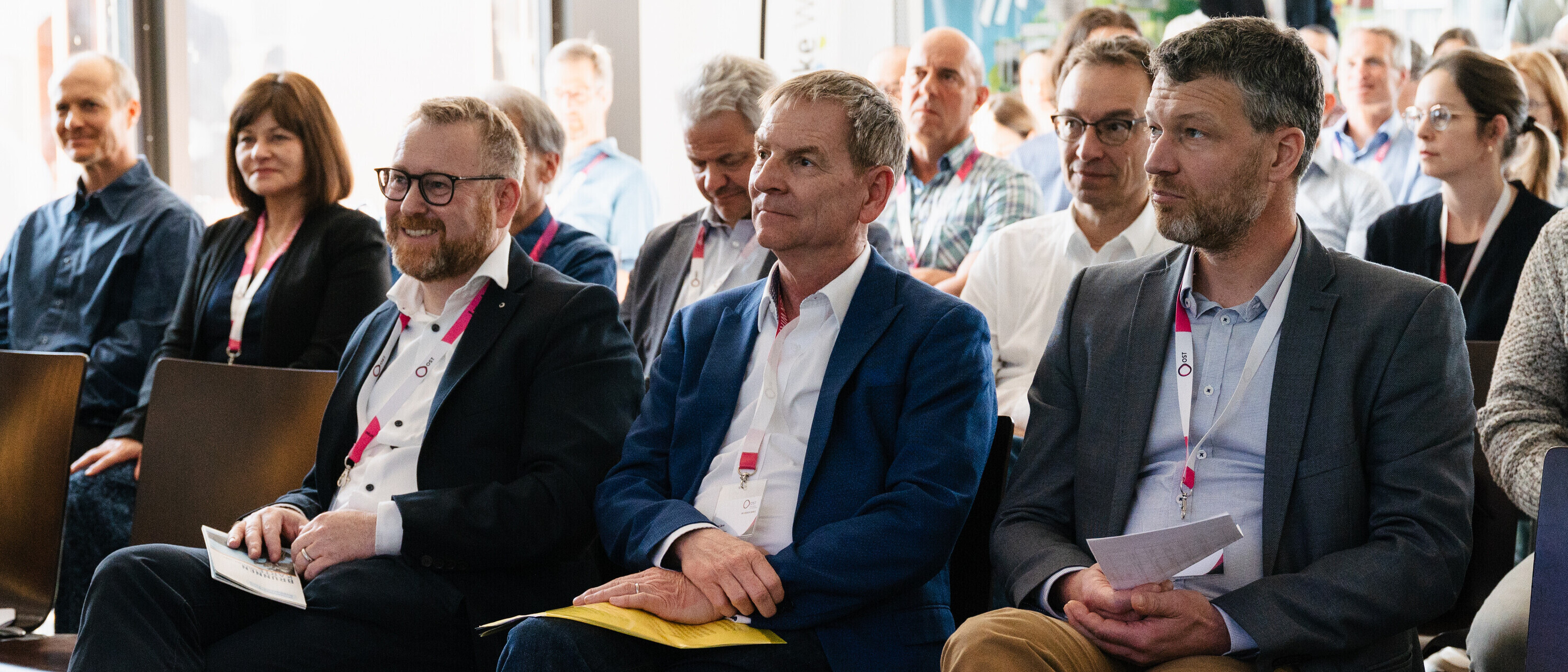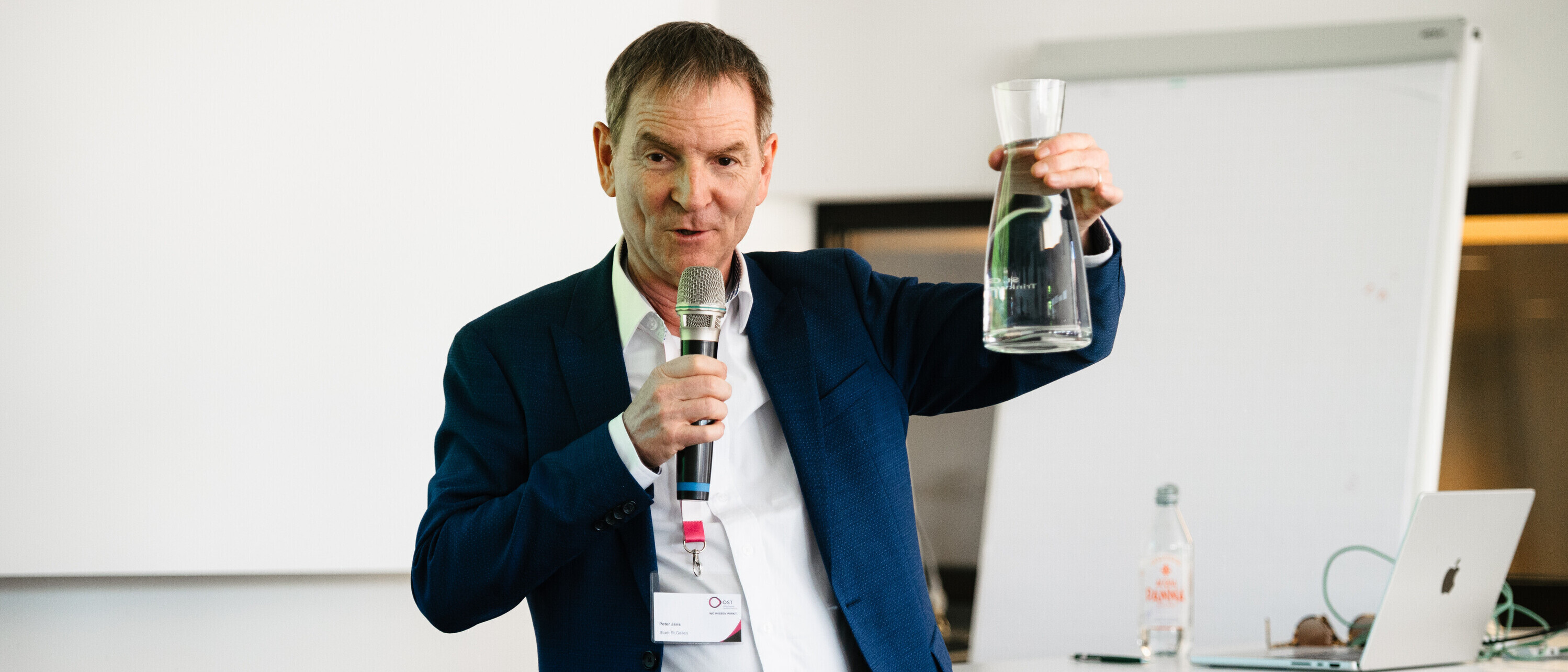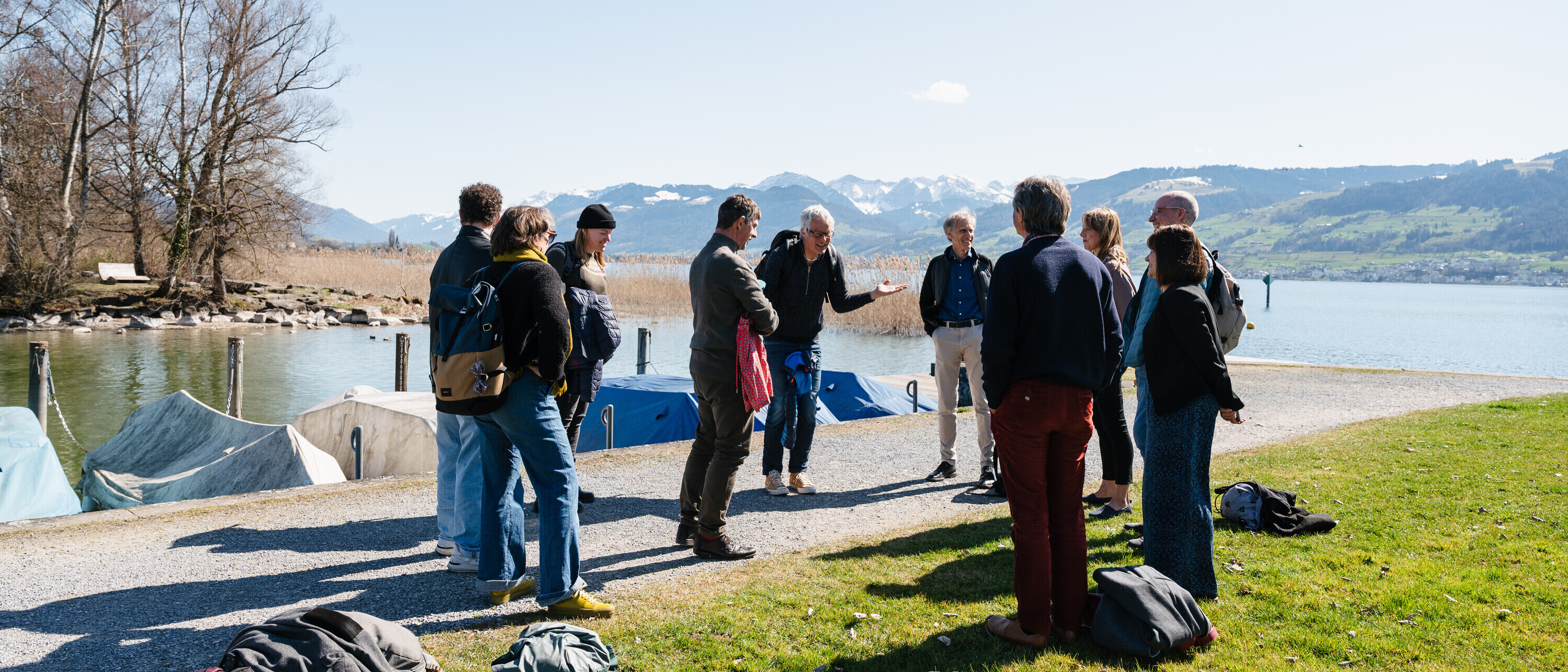Water in Transition: OST Symposium for World Water Day
Making a Splash: A Jump into the Water to Kick Things Off
The interdisciplinary symposium hosted by OST – Eastern Switzerland University of Applied Sciences – began with a refreshing swim in Lake Zurich. The symbolic dive set the tone for the event, establishing a direct connection to the theme of water before moving into discussions on the global and local challenges of water supply—and possible solutions.
Global Problems, Local Consequences
Despite its reputation as the «water tower of Europe,» Switzerland is under increasing pressure. Climate change, pollutants like PFAS, and aging infrastructure are putting water security at risk. «We either have too much water, too little, at the wrong time, or in poor quality,» summed up Rolf Meier, Deputy Director of the Swiss Gas and Water Industry Association (SVGW). Especially concerning is the dramatic retreat of glaciers, which serve as natural water reservoirs.
Water Has Value—but Hardly a Price
Although water is essential to life, a carafe of tap water in St.Gallen costs less than a quarter of a cent. Yet behind it lies a complex system of technology, planning, and dedicated effort, as representatives from municipalities and water utilities emphasized. In other parts of the world—particularly in the Global South—access to clean, sufficient water remains an ongoing struggle. This is where OST steps in with projects like solar-powered water treatment systems in Liberia.
Global Responsibility Starts at Home
Ensuring that water remains available in adequate quantity and quality in the future will require global commitment. At the same time, local action is crucial. Water ambassador Ernst Bromeis made a passionate appeal: «People see the consequences—crumbling mountains, endangered forests, polluted rivers. But we’re not acting decisively enough. Forums like today’s often fade from memory, even though the urgency remains.»
Solutions Exist—But Collaboration Is Key
From climate adaptation and sustainable agriculture to education initiatives, the symposium’s workshops and panel discussions explored a wide range of solutions. One message came through clearly: greater collaboration and bold action are needed—both in Switzerland and around the world. Following the symposium, a call for cooperation and partnerships was issued.

